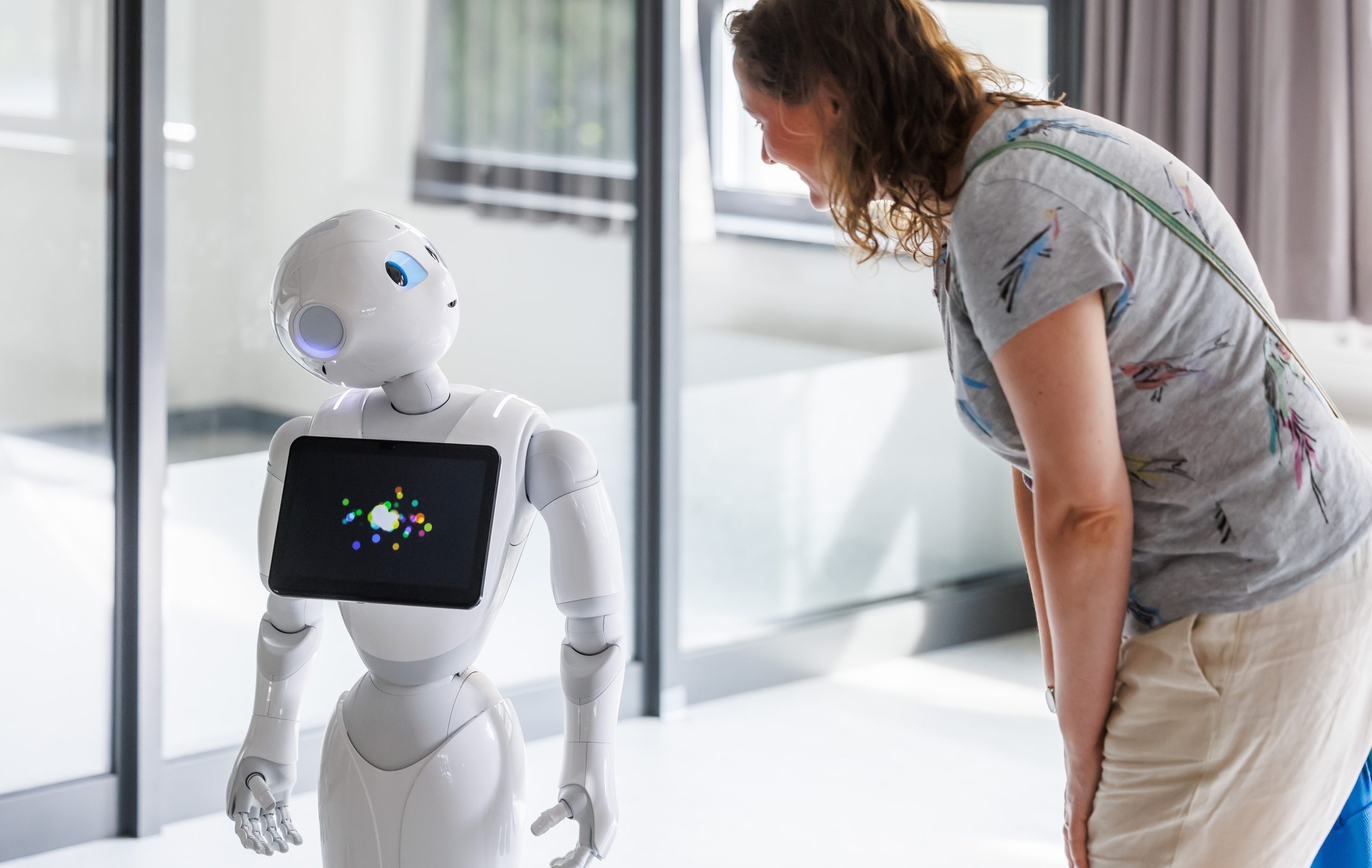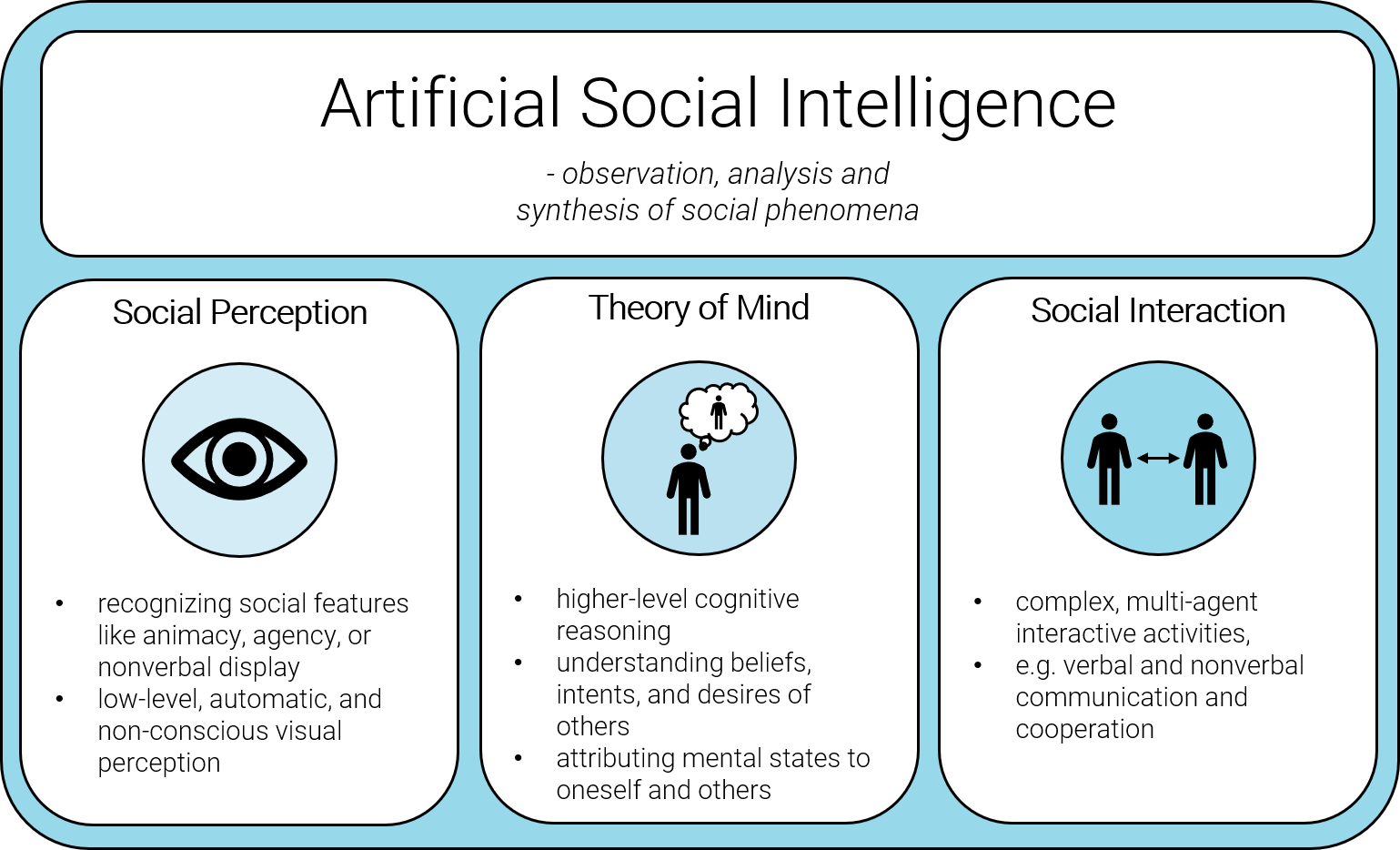Artificial Social Intelligence
What is Artificial Social Intelligence (ASI), and how can it deepen our understanding of social interactions? What insights can technology-based approaches offer into the complexities of human social behavior and cognition? This course aims to provide a comprehensive exploration of ASI, which involves the observation, analysis, and synthesis of social phenomena. It integrates synthetic sciences such as machine learning, computer vision, and robotics with cognitive science, psychology, neuroscience, and the humanities to focus on the perception, cognitive components, and behaviors linked to social intelligence.
The course begins with a series of seminar sessions that will introduce key topics and foster in-depth discussions. Structured into three thematic blocks—Social Perception, Theory of Mind, and Social Interaction—the program highlights different aspects of ASI:
1. Social Perception: This foundational block focuses on recognizing social features like animacy, agency, or nonverbal display. It encompasses low-level, automatic, and non-conscious visual perception essential for ToM and social interaction.
2. Theory of Mind (ToM): ToM involves higher-level cognitive reasoning, including understanding beliefs, intents, and desires of others. It revolves around attributing mental states to oneself and others and recognizing differing perspectives and mental constructs.
3. Social Interaction: This block highlights more complex, multi-agent interactive activities, like verbal and nonverbal communication and cooperation, extending beyond social perception and ToM by adding an interactional perspective.
Additionally, the course will address significant challenges in the development of ASI, including ethical and societal considerations.
In the second half of the semester, internationally renowned speakers from various fields will deliver lectures, offering a wide-ranging perspective on ASI.
The course is open to students from other Berlin universities.
Acquired Competencies:
Students will gain the following competencies:
• Interdisciplinary Knowledge Integration: Develop an understanding of how to integrate theoretical and methodological concepts from psychology, cognitive science, neuroscience, computer science, and robotics to explore the field of artificial social intelligence.
• Understanding of Social Neuroscience: Gain a deep theoretical insight into the neural basis of social behaviors and processes, and how these are represented in the brain.
• Social Perception and Cognition: Obtain knowledge on theoretical concepts related to social perception, theory of mind, and the cognitive underpinnings of social interactions.
• Theoretical Foundations in AI and Machine Learning: Acquire a grounding in the principles and theories of AI and machine learning, particularly as they relate to social intelligence.
• Ethical and Societal Implications: Develop an awareness of the ethical considerations and societal impacts associated with the development and application of artificial social intelligence.
• Research Methodology and Critical Analysis: Learn to design and critically analyze interdisciplinary research in cognitive science and AI, focusing on theory and conceptual frameworks.
• Communication and Collaborative Skills: Enhance abilities in effectively understanding and communicating complex ideas and theories, particularly in interdisciplinary academic contexts, fostering future collaborative research approaches.
Course duration:
23 October 2024 – 12 February 2025
Schedule:
Wednesdays 4–6pm
Venue:
MAR Building @ TU Berlin
Marchstr. 23, 10587 Berlin
Room 2.057
Course organizer
Jonas Frenkel
Supervising PI
Henning Sprekeler







